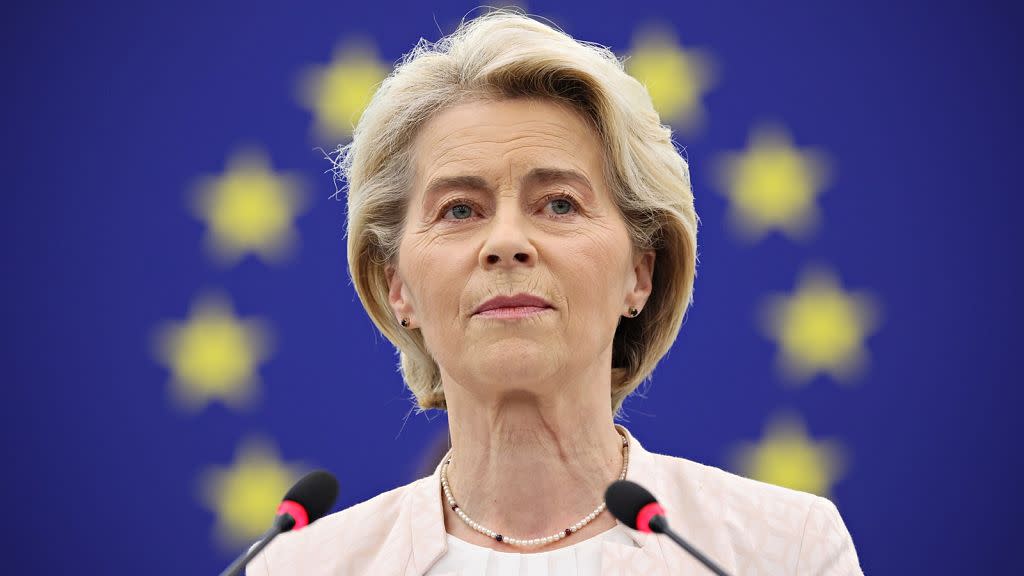Von der Leyen is 'playing with fire' over Taiwan, China warns after her re-election

- Oops!Something went wrong.Please try again later.
The re-election of Ursula von der Leyen as European Commission president has already triggered the first international spat: China has denounced the political guidelines of her second mandate for containing "gross interference" in the country's internal affairs.
"Playing with fire on Taiwan is highly dangerous," Wang Lutong, the director general for European affairs at the Chinese Ministry of Foreign Affairs, said on Friday, one day after the Commission chief clinched a majority in Strasbourg.
"Meddling and even trying to join forces is by no means a right choice for Europe."
Lutong's recriminations refer to a small passage in von der Leyen's re-election manifesto that commits her executive to work closely with Japan, Korea, New Zealand and Australia to address "common challenges in cyber, space and in the secure supply of critical minerals and technologies."
"This includes our collective efforts to deploy the full range of our combined statecraft to deter China from unilaterally changing the status quo by military means, particularly over Taiwan," she writes in her 30-page long document.
The reference adds nothing new and simply repeats von der Leyen's well-known stance: Beijing should refrain from any activity that can forcefully alter the decades-long stalemate in the Taiwan Strait, including a military invasion that many fear is inevitable.
But for China, any statement favourable to Taiwan is a red line that no country, whether ally or adversary, must cross.
The People's Republic of China (PRC) considers Taiwan, whose formal name is the Republic of China (RoC), as a breakaway province that needs to be reconciled with the mainland. Taipei rejects this view and argues the island, after years of building up its democratic institutions, is a de facto independent nation.
Taiwan's new president, William Lai, has offered to resume bilateral contacts but insists the RoC and the PRC will never be subordinate to each other. His outspoken views have increased tensions with Beijing, which considers Lai an "instigator of war."
The EU does not recognise Taiwan and has no embassy in Taipei. However, the two sides conduct relations at a lower level on a variety of topics, such as renewable energy, security, research, data protection, human rights and, most importantly for Brussels, semiconductors, a crucial industry where the island enjoys an unbeatable edge.
These ties have intensified in recent years, partly in response to the sharp deterioration in EU-China relations, and are expected to expand during von der Leyen's next mandate.
In a statement, Taiwan's Ministry of Foreign Affairs congratulated the president on her re-election and "expressed appreciation for her high level of support and concern for peace and stability across the Taiwan Strait."
"In the future," the statement says, "Taiwan will also further collaborate with the European Union to safeguard the rules-based international order and jointly open a new chapter in their friendly and mutually beneficial cooperation."

